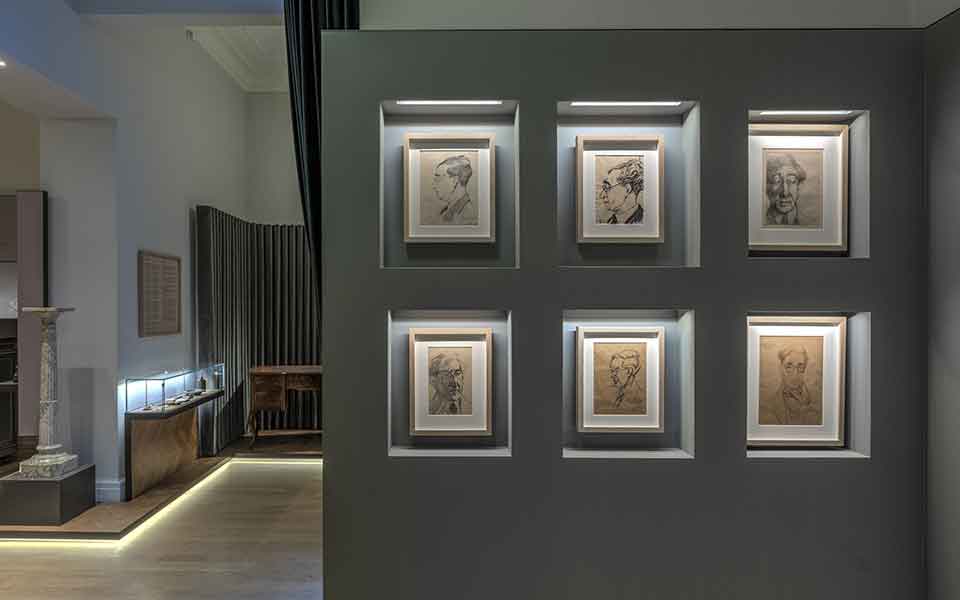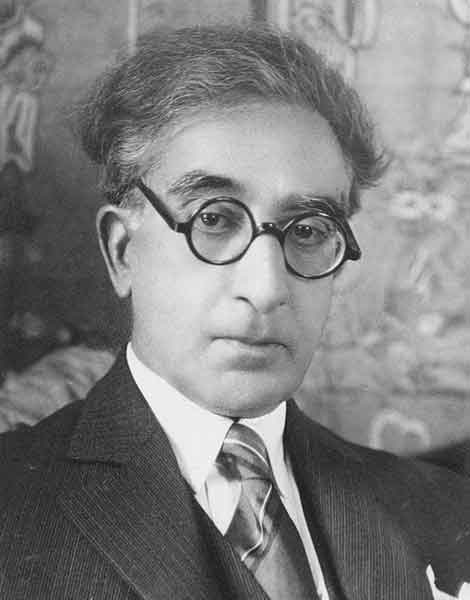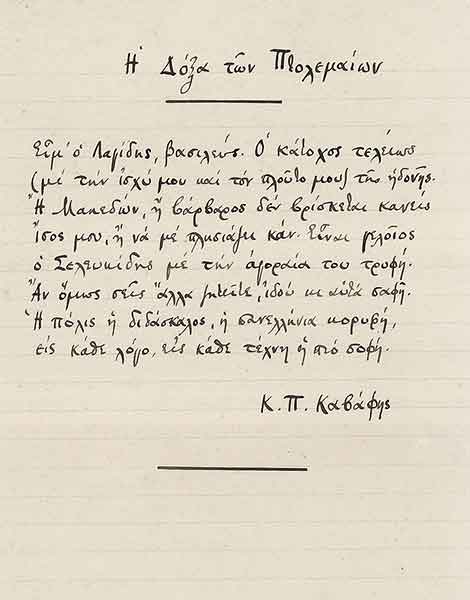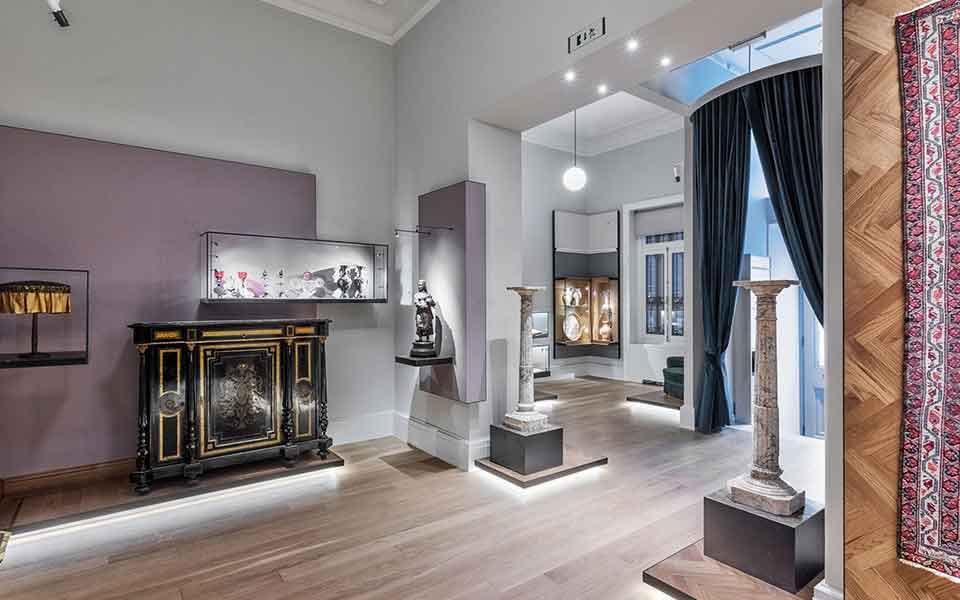The Onassis Foundation has announced the formal opening of a brand new cultural attraction in the heart of Athens: a permanent home for the archive and personal library of one of the most important poets in the modern Greek language, Constantine P. Cavafy (1863-1933).
This week’s opening on Frynichou Street in Plaka represents an important milestone in Cavafy research, providing scholars and members of the public direct access to over 2,000 items, including manuscripts of poems and other literary works, articles and notes, as well as a rich collection of personal items.
The Alexandrian Greek poet was introduced to the English-speaking world in 1923 by his friend, E.M. Forster (1879-1970), the English novelist (“A Room with a View”) and literary critic, who famously described Cavafy as “a Greek gentleman in a straw hat, standing absolutely motionless at a slight angle to the universe.”

© Stelios Tzetzias
The new Athenian home for Cavafy’s extensive archives, which opens 90 years after his death, is a repository of knowledge and priceless documents, methodically organized to present a rich tableau of his life and works. The rooms at 16 Frynichou Street reflect the ambiance of the early 20th century apartment building where Cavafy lived in Alexandria, Egypt, on the second floor of 10 Rue Lepsius. Today, his former Alexandrian residence, where the poet spent most of his life, hosts the famous Cavafy Museum, loaded with books, furniture, personal items and memorabilia.
Visitors to the Archive can expect to see snapshots of the poet’s life in Alexandria, with references to the interiors of houses at the time. Speaking at the official opening event this week, hosted by Onassis Foundation President Antonis S. Papadimitriou, architects Eva Manidaki and Thanasis Demiris, who worked on the design of the Archive, discussed its layout: “Our choice was not to make a representation of the apartment on Lepsius Street, nor a metaphor of the space, sounds and feelings of the poet’s hometown. With the objects at our disposal, we create small events, snapshots of life with references to the interiors of Alexandrian houses at the same time.”

© Public domain

© Public domain
Who was Cavafy?
Born in Alexandria on April 29, 1863, Constantine P. Cavafy was profoundly influenced by the cosmopolitan environment of his home city, an east-west clearing house for Egyptian, Greek and other European artists, writers, and intellectuals. His upbringing in a Greek-speaking family immersed him the rich cultural heritage of Hellenistic Alexandria, providing a backdrop for his exploration of ancient history and philosophy.
Cavafy spent formative years during his adolescence in England, where his family moved following his father’s death in 1870. The exposure to English literature and culture during this time significantly influenced his literary sensibilities. However, it was the return to Alexandria in 1885 that would shape the core of his poetic identity.
Cavafy’s professional life was diverse, reflecting his pragmatic approach to sustaining his art. He worked as a civil servant for most of his career, holding positions in the Irrigation Service and the Ministry of Public Works. Despite his commitment to a bureaucratic career, he dedicated his spare time to writing and contributing to literary journals.
The poet’s unique voice emerged during the latter part of the 19th century. His work became a bridge between the classical past and the modern world, navigating the tensions between tradition and contemporary life. His most celebrated poems include “The City” (1894), “Waiting for the Barbarians” (1904), and “Ithaca” (1911), inspired by the homeward voyage of the Homeric hero, Odysseus. In these verses, he masterfully intertwines the personal with the historical, creating a tapestry of reflections on life, mortality, and the pursuit of wisdom.
Cafavy died on his birthday, April 29, 1933, aged 70. His impact on modern Greek literature is immeasurable, and his poetry has been translated into numerous languages, further expanding his global reach. As such, Cavafy is widely regarded as one of the most influential poets of the early 20th century.

© Stelios Tzetzias
Visiting the Archive
Visitors to the newly-opened Cavafy Archive in Athens will be able to explore the life and works of the great poet, spread across three spacious rooms on the ground floor of the Neo Baroque building on Frynichou Street. In the first room, aptly described as a museum, the showcases present a host of personal items, including porcelain vases, candlesticks, framed family photographs, and even a pair of the poet’s distinctive glasses. Amid the furniture is the writing desk and elegant green velvet armchair where het sat.
The second room will host temporary exhibitions. The first such exhibition, entitled “Cavafy’s Athens,” is dedicated to his relationship with the Greek capital and the four journeys that brought him to the city which, as he once wrote, he visited “as if going to Mecca.” The exhibit includes publications of distinguished Athenian poets and prose writers, with their handwritten dedications to Cavafy.
The third room is the Reading Room, a simple study adorned by a number of well-known portraits of the poet, such as the painting by Nikos Engonopoulos (1907-1985), a prominent member of the “Generation of the 30s,” a group of intellectuals who spearheaded modernism in Greek art and literature. Here in the Reading Room, visitors will encounter the poet’s own personal archive, including 966 books from his library in Alexandria, and a rich collection of correspondence and photographs.
For scholars wishing to access any part of the literary archive for research purposes, contact the Onassis Foundation here.
With information in Greek from kathimerini.gr.












